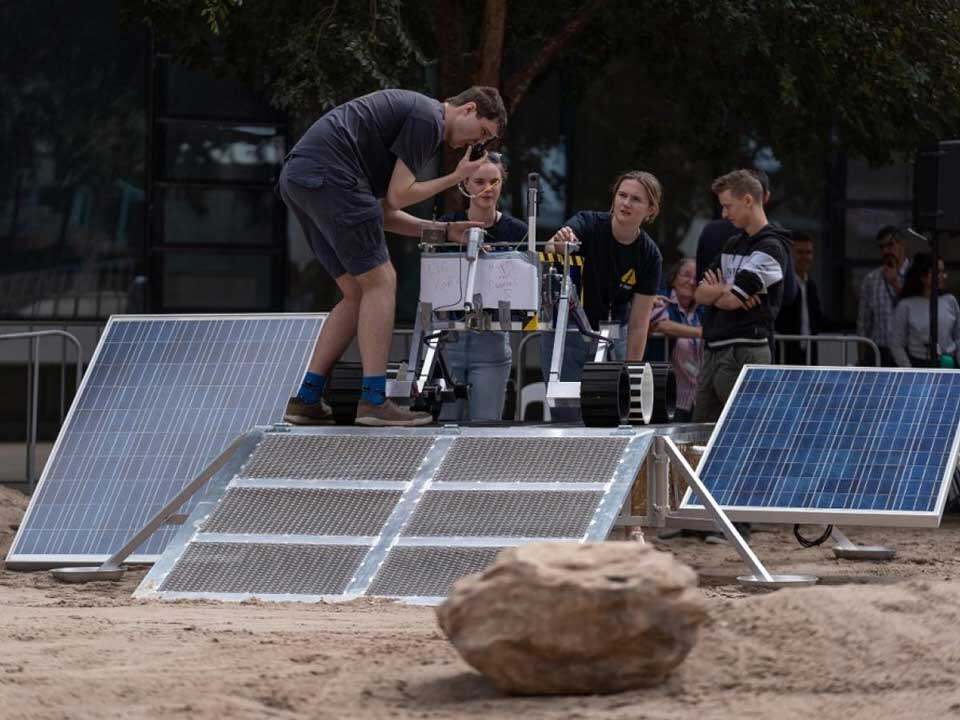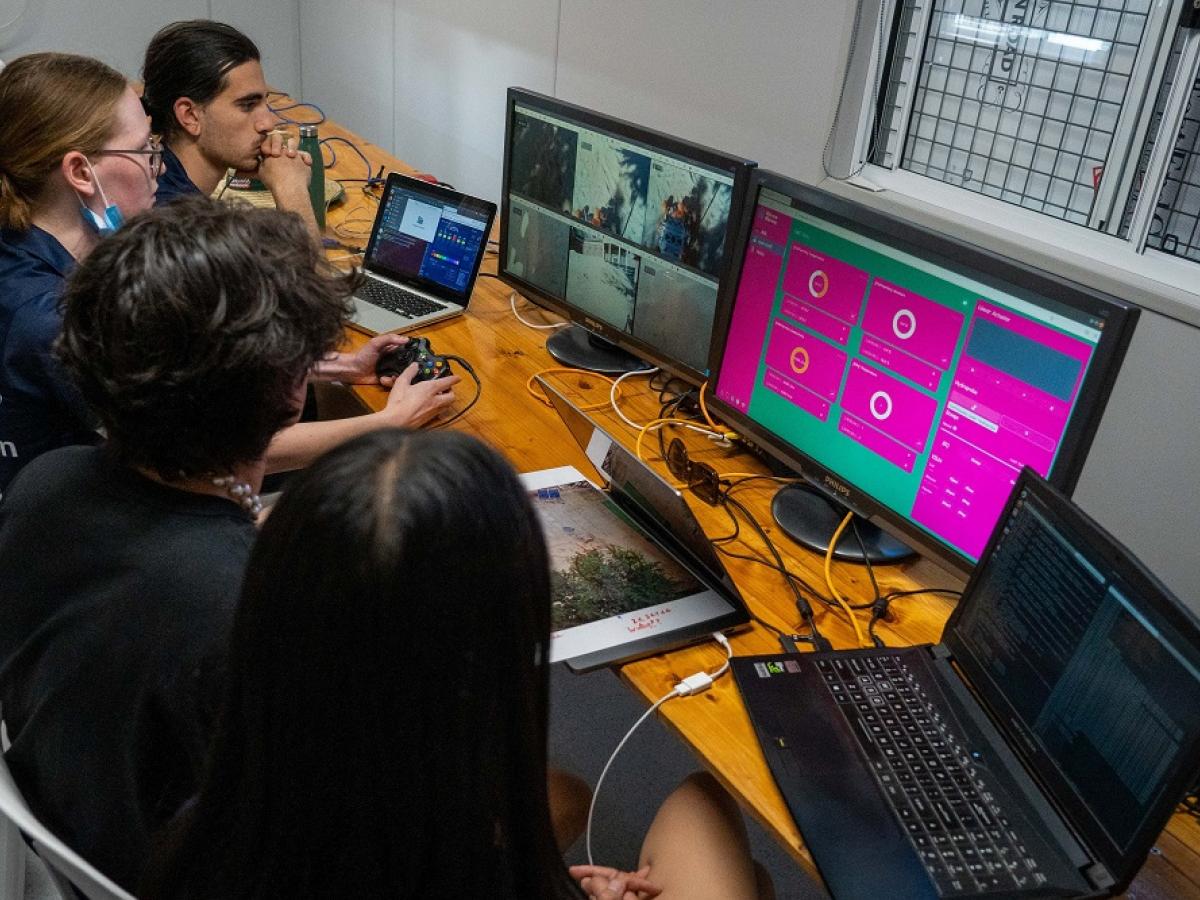Teams from around Australia and overseas face a four-day challenge when their lunar rovers will be tested to their limits at this year’s Australian Rover Challenge (ARCh) held at the University of Adelaide.


Starting on Thursday 23 March a series of exercises on a simulated lunar landscape on North Terrace campus will put rovers from as far away as Poland through their paces.
“The global Australian Rover Challenge tests students to design and build a rover to compete in a simulated lunar mission,” said the University of Adelaide’s Associate Professor John Culton, Director, Andy Thomas Centre for Space Resources.
“ARCh doesn’t just test the capabilities of lunar rovers; it stretches the space engineers of the future to work as teams to solve problems in real-time.
“ARCh participants could become the NASA engineers of the future who will navigate the successors to Mars rover Perseverance, on planets, moons, and asteroids throughout the solar system.”
Four different challenges will test the capabilities of the rovers. Students will remotely navigate their rovers around sandy loam, rocks, craters, a life-sized space lander, solar panel arrays and other simulated space infrastructure.
Rovers must be built according to the competition rules and no bigger than one-and-half metres in size, so they fit on the three-metre lunar lander.
Last year’s winning team from Monash University will face stiff competition from students from Wrocław University of Science and Technology, Poland; Royal Melbourne Institute of Technology; Queensland University of Technology; University of Technology Sydney; University of Queensland; University of Melbourne and the University of Adelaide.


Mechanical, aerospace or spacecraft engineers design, build, test, maintain and repair spacecraft as well as related equipment and systems such as lunar rovers.
The ARCh will inspire the next generation of engineers to learn-by-doing through the hands-on simulated tasks. These are the kind of challenges that they will be faced with in their future careers.
“Boeing solves some of Australia’s toughest defence and aerospace technical challenges from seabed to space,” said Scott Carpendale, Boeing Defence Australia Vice President and Managing Director.
“Partnerships such as those with the University of Adelaide are a tangible demonstration of our commitment to building Australia’s space capability and workforce through programs, research, supply chain and STEM activities.”
The Australian Rover Challenge is a free event open to anyone who would like to watch it on the Maths Lawns on North Terrace campus.
Each rover team will undertake the following tasks as part of the competition:
Thursday 23 March 10 am to 5 pm. Post landing task
In the simulated exercise, the rovers have just landed on the surface of the Moon and the teams are required to execute a task list to work towards establishing an in-situ resource utilisation (ISRU) operation. Each rover must exit the lunar lander to conduct a systems check on it and relay any damage to the judges. They will use their rovers to find the location of a supply cache while traversing obstacles and rocks, and then initiate the start-up protocol of the processing lander.
Friday 24 March 10 am to 5 pm. Construction and excavation task
Rovers will need to extract, transport and deposit dry lunar regolith and assess the terrain, shape and clear debris, and interact with or deploy artificial structures.
Saturday 25 March 10 am to 5 pm Space resources task
Rovers are expected to perform in-situ resource identification and processing of icy lunar regolith (extra-terrestrial soil) to determine which unexplored sample site may yield the greatest amount of frozen water, and to extract as much water as possible to support human life-support systems and refuelling of spacecraft.
Sunday 26 March 10 am to 5 pm Mapping and autonomous task
Rovers are required to map the simulated lunar area and traverse autonomously in support of establishing a sustainable, long-duration ISRU base.
The University of Adelaide’s Australian Rover Challenge is supported by premier partner Boeing Defence Australia, major partners the Australian Space Agency and ispace, and event supporters the South Australian Space Industry Centre and Drone Deploy.
For more information about the Australian Rover Challenge visit the ARCh homepage.





































